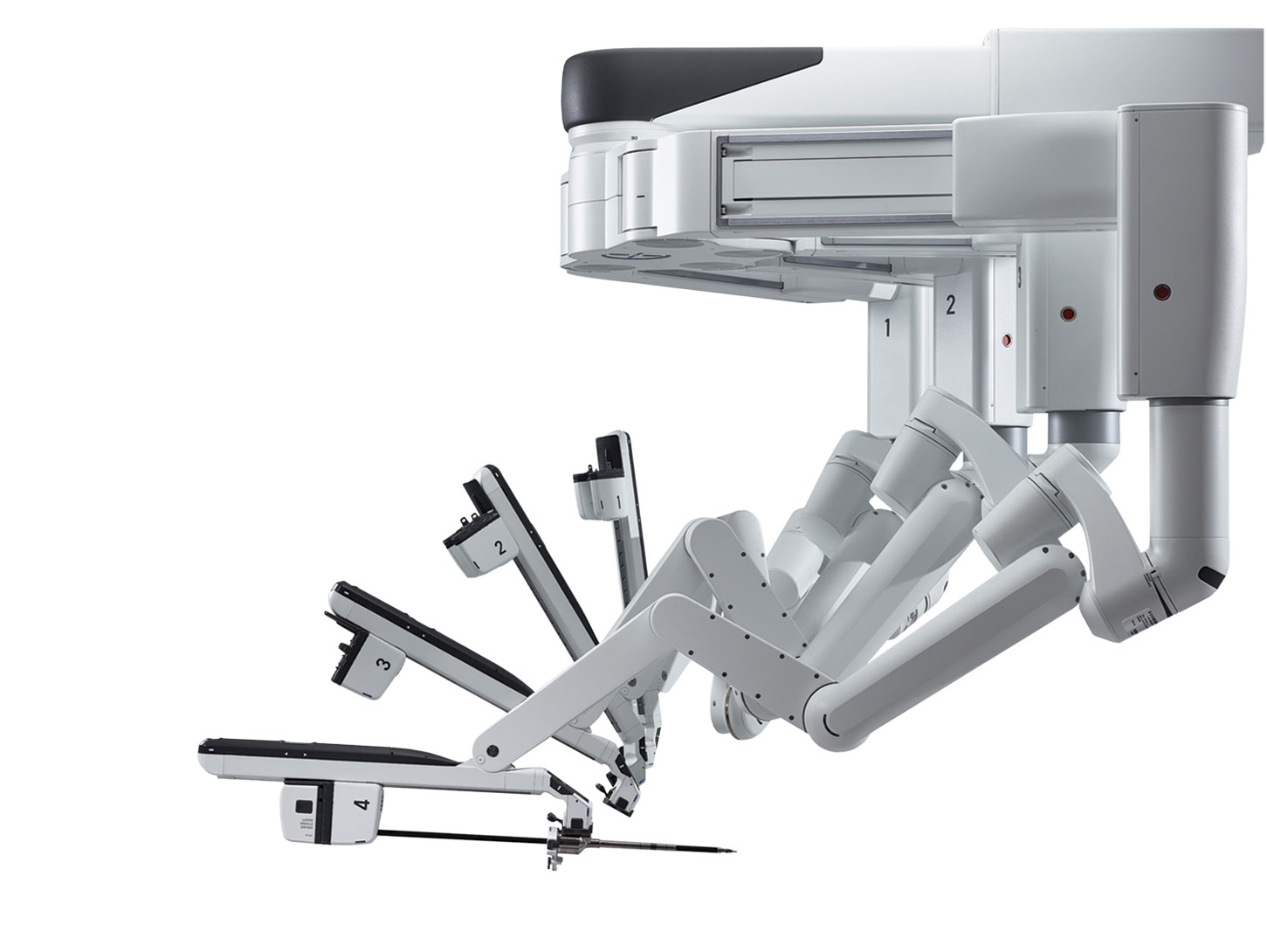When it comes to meeting the needs of patients, Ephraim McDowell Health is bringing cutting-edge technology to the community. That technology now includes the latest model of the da Vinci Surgical System, and it will be used in many of the surgeries performed at Ephraim McDowell Regional Medical Center.

Use of the da Vinci robot will benefit patients, as it means less blood loss, less need for pain medication and a shorter hospital stay. The surgical system also benefits surgeons by providing enhanced vision of the surgical area as well as affording enhanced precision and control of the system’s instruments.
“The da Vinci Surgical System will change cancer care here at Ephraim McDowell, especially colon and rectal cancer,” said Swope Munday, M.D., a board-certified general surgeon. “It makes us competitive with other hospitals in the state, and it helps us work with more precision in the O.R.”
The da Vinci Surgical System was first approved by the Food and Drug Administration in 2000. Since then, it has been used with more than three million patients worldwide. The Ephraim McDowell Health Care Foundation made a $1 million investment toward the purchase of the da Vinci XI model, which is currently used by only six other hospitals in Kentucky.
Surgeons see robotic surgery as the next step up from laparoscopic surgery, said Joyce Young, MSN, MHA, RN, NE-BC, director of Surgical Services at the Regional Medical Center. She explained that both types of surgery are minimally invasive procedures that use tiny incisions. The added advantage with robotic surgery is that the system features a magnified, three-dimensional, high-definition vision system and tiny wristed instruments.
“With laparoscopic surgery, the surgeon performs back-and-forth movements with the surgical instrument, while the da Vinci system provides a 180-degree wrist movement,” Young explained.

Dr. Munday noted, “With the da Vinci, we get back our 3D vision and depth perception along with the wrist movement. It gives us the advantages of laparoscopic surgery but with smaller incisions.”
Preparations to acquire the da Vinci Surgical System began more than a year ago when Ephraim McDowell’s Surgical Services Department hosted a Vendor Fair to showcase the advanced surgical equipment being introduced into the marketplace. Young said physicians had already approached the health care system’s administrative team about investing in a da Vinci robot, which was among the equipment demonstrated at the Vendor Fair.
Shortly thereafter, thanks to a generous gift provided by the Ephraim McDowell Health Care Foundation, one of the operating rooms at the Regional Medical Center was expanded from 200 square feet to 525 square feet in order to accommodate the surgical system.
Young said the da Vinci Surgical System will be used for general surgeries such as hernia repairs, gallbladder removals, bowel surgeries and low anterior resections. In the future, it will also be used for urologic and gynecologic surgeries including prostate removals, kidney cancer and hysterectomies.
“This system benefits
David Montgomery, M.D.
patients because they
have less incisional pain.”
general surgeon
Among the first surgeons to be trained to use the da Vinci Surgical System were Dr. Munday and David Montgomery, M.D., also a board-certified general surgeon. They completed training in Atlanta to operate the system and then had to proficiently perform five surgery cases while monitored by a surgeon experienced in using the system.
“The articulation of the instruments and visualization of the surgical area are a lot better with he robot,” said Montgomery. “This system benefits patients because they have less incisional pain.”
Munday said the decision to use the robot for a surgical procedure depends on the individual patient’s case. He acknowledged that some patients have reservations about the use of the robot for their surgery, even though he explains to them that he is in control of the system’s movements during a procedure.
“I explain to the patient that the robot is an advanced laparoscopic instrument that has no intelligence of its own,” he said. “Patients just want what is best for them, and they trust us to tell them what is best.”
Munday said the greatest benefit he sees for patients is a shorter hospital stay when the robot is used. He explained that laparoscopic surgery for a lower anterior resection typically requires a patient to stay in the hospital up to two weeks. With the use of the da Vinci, a patient’s hospital stay for that procedure has been reduced to three days, he said.
“The purchase of the da Vinci Surgical System shows that Ephraim McDowell is invested in staying competitive and in being the best in health care,” Munday said.
